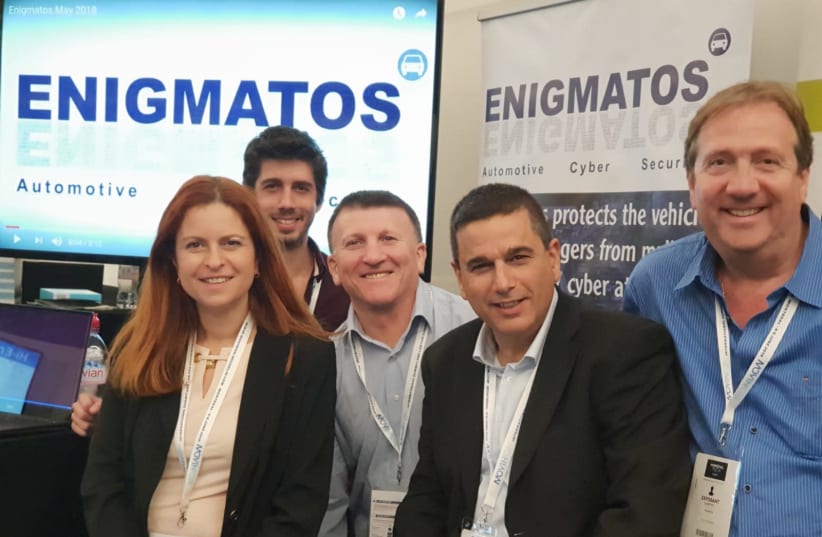With fully autonomous cars and increasingly connected vehicles poised to enter the market, the risk of cyber attacks on vehicles is a growing and real threat.
Enigmatos, a Yavneh-based start-up with a highly-experienced team of automotive, cyber and machine-learning experts, is on the front line of defending the 1.2 billion existing vehicles, as well as future vehicles, from malicious cyberattacks.
The president of the company, Ami Shafran, served as the head of the IDF’s C4I corps, responsible for the entire information and communication technology, electronic warfare and cyberdefense of the military.The concept of cyberattacks on vehicles is far from hypothetical. Recent attacks carried out by researchers have found vulnerabilities and have even seized control of vehicles in cars of leading brands including Chrysler, Tesla and BMW. If the mobility revolution of autonomous and connected vehicles is to prove successful, cyber security will be key to the process.“Fortunately, all the hacks in recent years have been by researchers,” VP of Business Development at Enigmatos Orit Fredkof told The Jerusalem Post.“That proves to us that today’s vehicles are already susceptible to hacking – and as we add connectivity and additional autonomy levels to the vehicle, we add more entry points for hackers. So the threat is definitely there, and hackers will definitely make use of it.”At this month’s prestigious Paris Motor Show, Enigmatos showcased live-streaming of its ability to hack into vehicles located at its Israeli research lab from the comfort of France’s largest exhibition park.“We believe that cybersecurity is the cornerstone for all future mobility. If the masses will not trust the vehicle, the revolution will not happen. Mass adoption of cyber security is necessary for mass adoption of all innovation,” Fredkof said.Enigmatos’ software-based solution is based on its unique Deep Car Identity Profiling technology, or the extraction of the vehicle’s unique digital DNA, which enables it to detect and prevent any malicious activity on the vehicle’s network.The patent-pending platform can detect any malicious hardware attached to a vehicle, such as a “sniffer,” and intercept any messages on the vehicle’s communication data that do not originate from a legal source.Should a hacker take control of an engine control unit, the system’s anomaly mechanism can identify messages that lack the exact vehicle signature of message context.“Our aim is to reside in the network – to detect, report and prevent in real-time all malicious activity in the vehicle,” Fredkof said.Major players in the global car market as well as legislators are now waking up to the potential threats posed by vehicle hacking. Currently valued at $55 million, the automotive cybersecurity market size is estimated to be worth $4.9 billion by 2024.“If five years ago you couldn’t even talk to the security guard at the entrance of a major car maker’s office, today they’re knocking on our door,” Fredkof said. Last week, the team was invited by major automotive manufacturers to present its platform at the prestigious SMMT Future Mobility Challenge conference in London.Two proposed pieces of legislation regarding the safety of highly automated vehicles and cybersecurity, the Self Drive Act and the Spy Car Act, are currently under consideration by the US Congress.“Within the next two years, there will be a commercially-deployed solution,” Fredkof said.“We always say that the hacker has the advantage of the element of surprise. Our aim is to be one step ahead, and not give him the entire advantage.”
